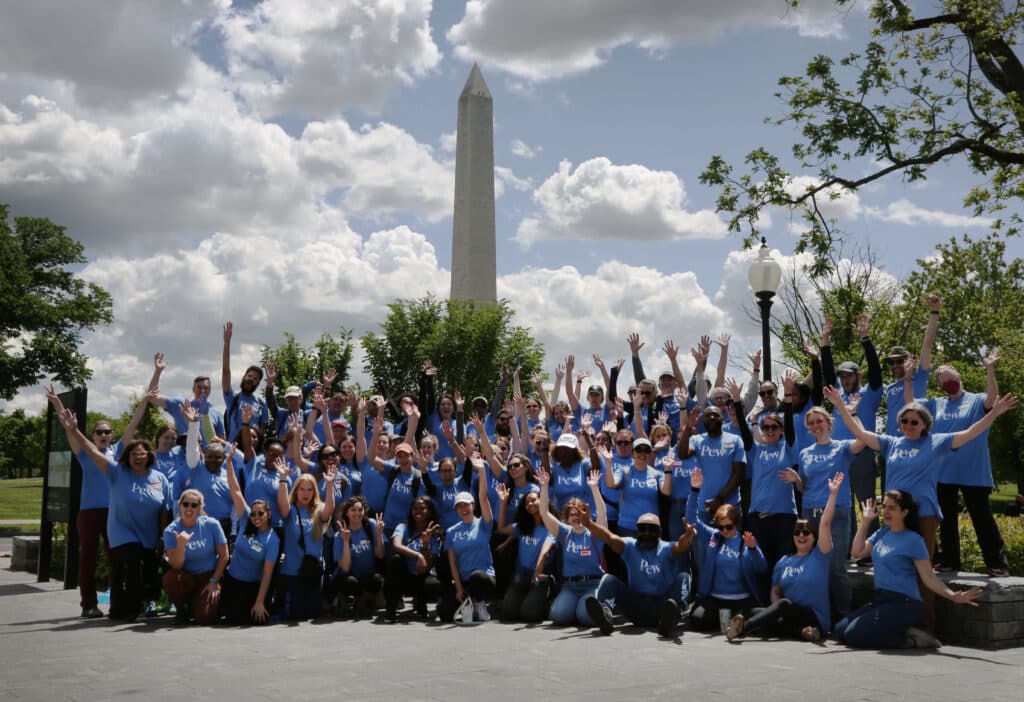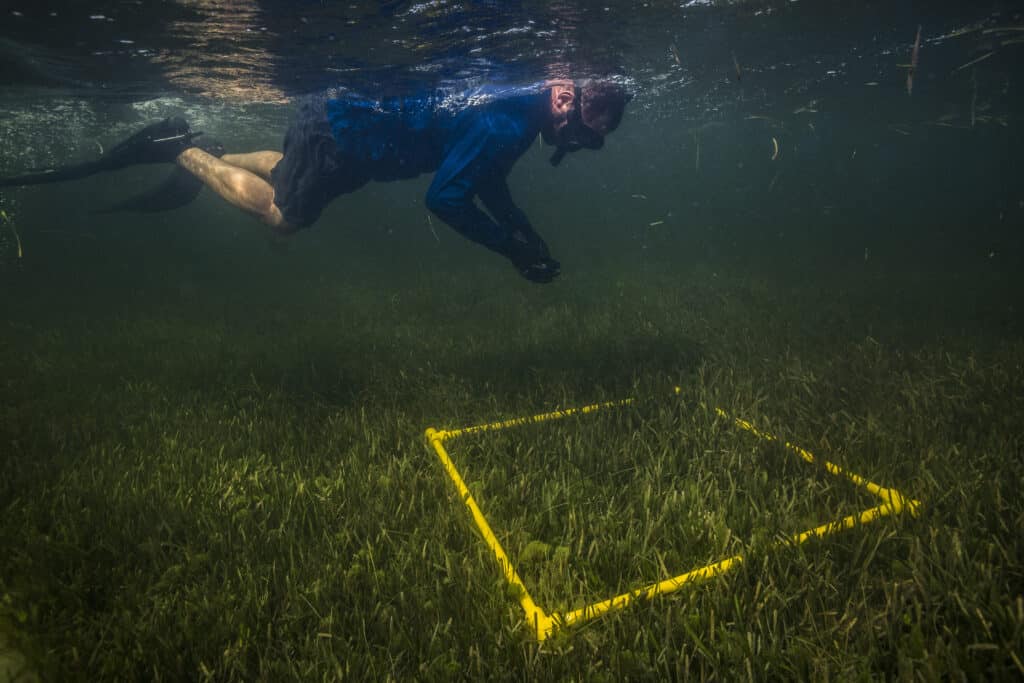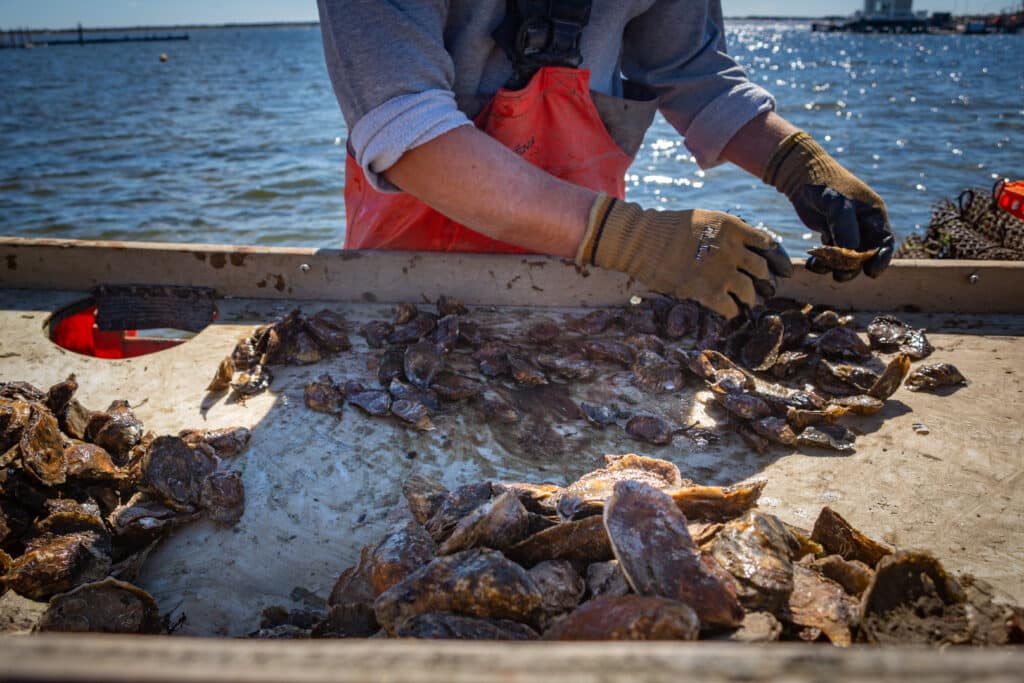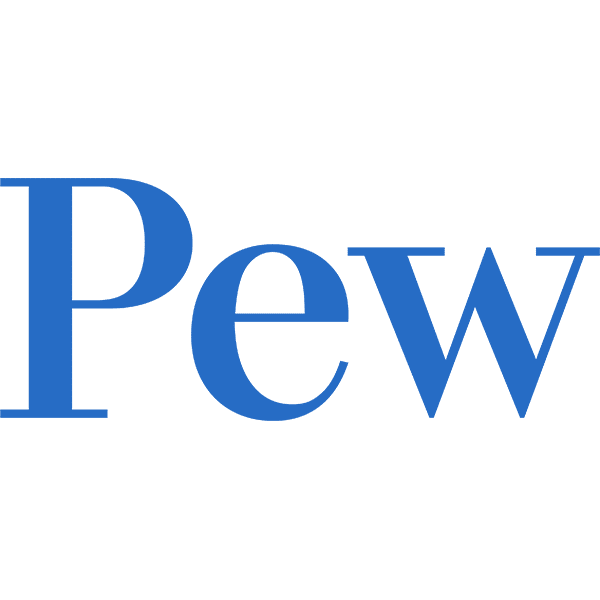The Pew Charitable Trusts is a global, nonpartisan, nonprofit organization that uses data to make a difference. Pew addresses the challenges of a changing world by illuminating issues, creating common ground, and advancing ambitious projects that lead to tangible progress. Pew advances environmental work in the U.S. and around the world so that nature and communities can thrive for future generations. We engage partners and use science to inspire innovative, time-bound solutions to drive results that support people, wildlife, and the ecosystems and climate upon which both depend.

Photo Credit: Putt Sakdhnagool / Getty Images (Licensed by Pew)
Getting to know Pew
Getting to know Pew
Founded in 1948, The Pew Charitable Trusts studies the problems that hold people back—and helps fix them. Informed by its founders’ entrepreneurial and optimistic spirit, Pew has evolved with the times while remaining true to the Pew family’s enduring interest in research, practical knowledge, and a robust democracy.
The institution’s work spans an array of issues from health care policies and broadband access to retirement and civil legal system reforms. Pew works with countries and partners around the world to protect environmental resources ranging from penguins in Antarctica to Canada’s boreal forest to valuable fish species throughout the oceans.
Values and approach

Photo Credit: The Pew Charitable Trusts
Pew’s values build on the organization’s past, reflect today’s challenges, and look to the future. They include a commitment to:
- Equity. We believe systemic inequities must be recognized, illuminated, and addressed. We operate from a perspective of mutual respect that affirms our individual differences and our common humanity.
- Humility. We recognize that our ability to create change is linked with the capacity and knowledge of our colleagues and our partners. We listen and foster understanding to serve the common good, acknowledging our mistakes and changing course when needed to learn and grow.
- Impact. We are ambitious and know that the path to success often comes through incremental steps. We know our strengths and apply our efforts where we see the greatest potential to make a difference. We measure our progress and seek a high return on investment in all that we do, because we know that lasting, measurable results matter for the communities we serve and support.
- Inclusion. We believe that diverse voices generate better ideas. We collaborate with others because we are more effective and creative together than we are alone. We understand that adapting to multiple viewpoints is an ongoing journey, and we are committed to a welcoming and inclusive culture.
- Innovation. Since its founding, Pew has been a dynamic organization, discovering and pursuing new approaches to meet the challenges of the day. We continually seek opportunities to improve the world through the work we do and the way we do it. We welcome bold ideas and the changes required to advance them.
- Integrity. We provide trustworthy information to ground public discourse and advance solutions. We are committed to accuracy, and we hold ourselves accountable for conducting rigorous research and developing recommendations grounded in data and science. We keep our commitments to our colleagues and partners. We are open about what we know and don’t know, and we avoid exaggeration.
- Nonpartisanship. We follow the facts wherever they lead us. When we take a stand, we do so based on evidence, not ideology or opinion. We are advocates for civil public debate, respectful dialogue, and thoughtful compromise that will lead to positive change. We remain steadfast in our belief in the power of expanding common ground and building bridges among different perspectives.
Conservation at the forefront

Photo Credit: Charlie Shoemaker for The Pew Charitable Trusts
A healthy planet delivers clean air, water, and food while protecting lives and livelihoods and supporting long-term economic growth and stability. And while nature can unleash powerful storms and floods, severe droughts and raging wildfires, it also has the ability to protect and sustain us—if we nurture it. When nature thrives, humans benefit.
That’s why Pew’s environment work prioritizes conserving global marine resources, safeguarding valuable terrestrial and freshwater habitat, and addressing key ecosystem threats that cause declines in biodiversity; habitat loss and fragmentation; and ecosystem degradation.
Yet protecting nature and vulnerable communities from these unprecedented threats is a task too great for any person or organization to tackle alone. To find solutions, we must work as partners—nations, communities, governments, Indigenous peoples, conservationists, scientists, world leaders, and others. Together we can determine the best path forward to preserve our lands, waters, culture, economies, and ways of life.
How Pew helps make a difference
Working with Tribes
Pew joined 78 Alaska Tribes in 2023 to urge the U.S. federal government to continue safeguarding 28 million acres of pristine lands and waters in Alaska that are important to Indigenous peoples’ way of life. In November 2024, the government agreed to keep ancestral lands protected from some forms of mining and development. These areas include critical watersheds with highly productive salmon streams, caribou calving grounds, tundra landscapes, coastal estuaries, moose habitat, and marshes important to migratory birds. These lands are also hunting, fishing, and gathering grounds for more than 100 Indigenous Alaska communities and include areas that border national parks, wildlife refuges, and the Bering Sea.

Photo Credit: The Pew Charitable Trusts
Helping economically struggling communities

Photo Credit: The Pew Charitable Trusts
During the height of the pandemic in 2020, Pew and The Nature Conservancy launched the Supporting Oyster Aquaculture and Restoration (SOAR) program to help struggling growers and imperiled oyster reef ecosystems by purchasing some 3.5 million oysters from 125 farmers to preserve 450 jobs and aid 40 acres of oyster reef restoration. Relaunched in 2023, SOAR has expanded its oyster purchase program from seven to eight states and renewed its Shellfish Growers Resiliency Fund to finance over 45 additional projects. And SOAR’s Diversity, Equity, Inclusion, and Justice Initiative facilitated conversations with community and industry leaders, identifying needs for mentorship, practical skill-building and education, and accessibility in the shellfish aquaculture industry. In response to those conversations, SOAR will fund projects in 2025 that focus on workforce development and education; providing resources for underrecognized, underrepresented, and underserved communities, and Indigenous communities participating in the aquaculture industry; and developing collaborative opportunities to cultivate and retain a more diverse workforce.
Partnering with people
In Santiago, Chile, thousands of people, more than 200 organizations (including Pew), and others joined a successful drive to create a new national park—Parque Nacional Glaciares (Glaciers National Park) in the Andes mountain range. Over four years, the group secured more than 200,000 signatures and reached stakeholders ranging from senators to popular influencers. The new park will protect 185,611 acres in an area where 368 glaciers supply more than half of the fresh water that serves 7 million residents of Chile’s capital city, which is the country’s largest metropolitan area. And it will help conserve wildlife, such as pumas and condors.

Photo Credit: Leonardo Latorre (via The Pew Charitable Trusts)
Recognizing Indigenous peoples’ knowledge and leadership

Photo Credit: Kerry Trapnell for The Pew Charitable Trusts
Australian Indigenous and non-Indigenous communities benefited from the Australian Government’s support for Indigenous Protected Areas (IPA). This innovative model of land management ensures that decision-making, conservation planning, and management is led by Traditional Owners in partnership with the government. With Pew’s support, the Country Needs People alliance of more than 40 frontline Indigenous land and sea management groups have advocated for the growth and development of the IPA network and community-based Indigenous ranger programs. IPAs and Indigenous rangers are world-leading examples of how governments and others can partner with Indigenous leadership in managing lands and seas.

Visit pewtrusts.org to learn more about The Pew Charitable Trusts’ work.